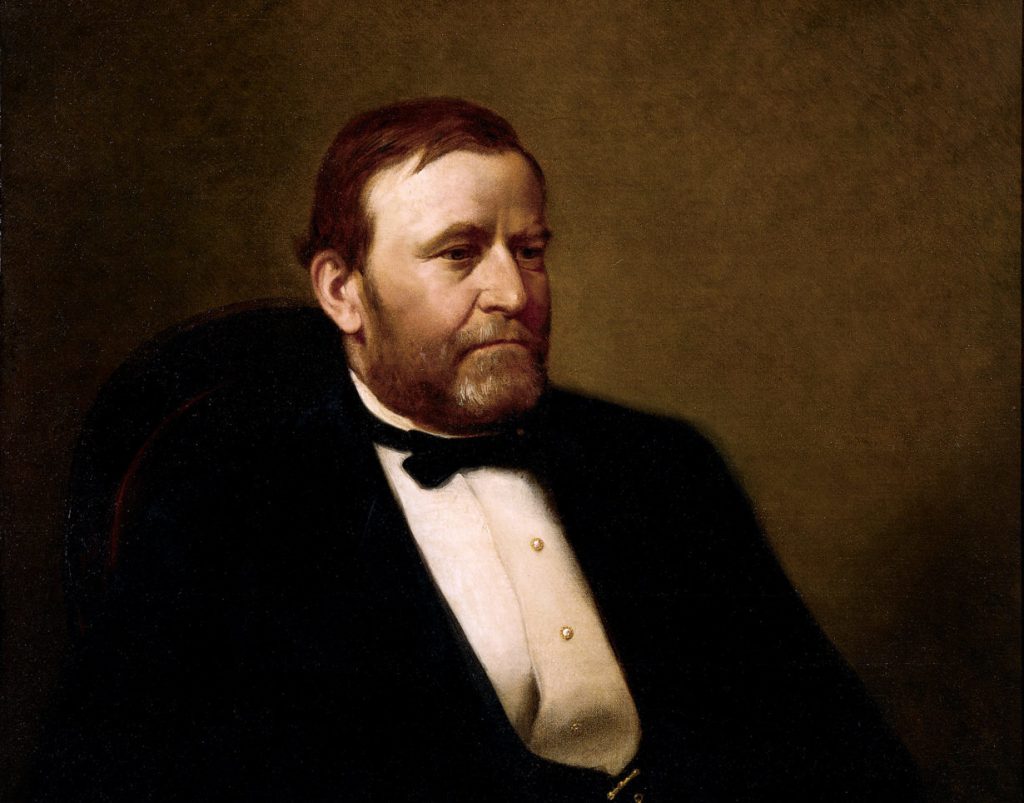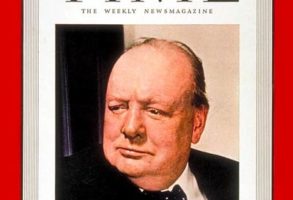
Published November 2, 2017
National Review - November 13, 2017 issue
Editor’s note: This piece appears in the November 13, 2017, issue of National Review.
Ulysses Grant’s was an unexpected American life, mysteriously comprehensive in its range and — the more that people have thought about him — in its meanings.
A parable of the mysteries of the ordinary, he went from poverty to presidency and back to poverty again — from obscurity and shame before the Civil War, to all that the country had to offer in the way of power and glory, and then back to ruin once more.
There was a familiar American residue of the Biblical in the story (Matthew 20:16 — “The last shall be first” . . . and, as it happened, last again). For a hundred years, he was ranked among the worst of presidents (down there with Buchanan and Harding). But the verdict has been reversed on appeal. Lately, despite the sullying alcoholism and the terrible butcher’s bills and the Gilded Age corruption, he has begun to achieve historical radiance.
Ron Chernow’s new biography, Grant, is kindly, just, and now and then hagiological, a patient character study that ambles along in Grant’s own historical time (rural Ohio boyhood, West Point and the Mexican War, the lonely frontier outposts, and the bottle . . . ). At 1,100 pages, it seems nearly as long as the 19th century itself. But Chernow is a fine storyteller, and the story does not flag.
Grant seemed to encompass the country’s binaries (Enlightenment ideals compromised by violent squalors). And yet he emerged, by grace and the mystery of his character, on the right side of things after all. His contradictory life probed the country’s major themes; above all it became a case study in the decisive American alternatives of success and failure, a theme that reverberates in the Gilded Age of the 21st century. Success and failure in the American mind are remnants of the Calvinist’s absolute binaries of salvation and damnation.
He became among other things an inquiry into the great American problem: how to reconcile virtue and power. He and Lincoln struggled endlessly with that.
Grant was a relatively slight figure (5′8″ and sometimes as light as 135 pounds), a seemingly unprepossessing and even shabby man. A graduate of West Point, he sold firewood on the streets of St. Louis in order to support his family in the pre-war days, after he had been forced out of the Army for drunkenness and had made a mess of farming at the place he called Hardscrabble. He sold his gold watch and chain to buy Christmas presents for his children. These are old stories, the Grant myth.
Then came Fort Sumter and his astonishing transformation — a classic American resurrection. George McClellan was a master of military preparation: the army as glorious tableau vivant. Other generals (dithering Rosecrans in Tennessee, Meade in his failure to pursue Lee after Gettysburg) also had “the slows.” But Grant’s practice of war was ruthlessly and single-mindedly active — daring on occasion, but relentless, American: as brutal as necessary and most gentle and generous when it was over. His genius consisted in his ability to absorb quantities of information not only as to the numbers of an opposing army and its fortifications and artillery but also as to landscape, weather, the morale of his men and the enemy’s men, the will and talents of his officers and the enemy’s, the state of the army’s health and rations and when they had last eaten. He had the Napoleonic instinct — a way of knowing how everything would be at 3 p.m. tomorrow afternoon. He was willing to act and take chances and fight. Action creates fresh reality. It was the great secret: A battlefield in motion is the river of Heraclitus, changing from one instant to the next. He had the character to enter entirely into the tragedy of war, which he hated; he was willing “to face the arithmetic,” as Lincoln said.
He rose to glory, the first genius of industrial warfare, commander of the million-man army that ended slavery and saved the United States. Lincoln and Grant presided over the regeneration of the American story. It was a nice touch that Grant looked only slightly better than a bum when he took the surrender at Appomattox from Lee, who showed up dressed as if for a costume ball. The terms of surrender were generous: Keep the sidearms, and horses for the spring plowing.
But Appomattox was merely the end of one phase of an American drama that goes on and on a century and a half later. The situation is vastly altered and yet in certain stubborn essences not changed very much.
As president, Grant did his best with Reconstruction; he suppressed the Ku Klux Klan and encouraged freedmen’s rights and promoted their full citizenship. As a champion of black rights, Grant was much admired by Frederick Douglass and others, and bitterly denounced by whites who organized the Jim Crow resistance that restored so much of the totalitarian status quo ante. After 150 years, the country is still sorting out the interrupted business of Reconstruction and the terms and conditions applying to the citizenship of black people. We live among the aftershocks, Charleston and Charlottesville and Black Lives Matter and Ferguson and the rest.
Chernow creates an interesting effect, working in a kind of fourth dimension: The reader’s mind keeps jumping from Grant’s 19th century to Trump’s 21st, making uneasy connections. It’s as if Grant’s story might be an allegory, a worst-case premonition, an origin myth, and a flash of déjà vu. Charlottesville and the fight about Confederate monuments have agitated old hatreds, so that just now the Civil War and its aftermath, Reconstruction and the Gilded Age and the reversion of the conquered South to the KKK and other Confederate ways, cast an odd shadow.
Chernow never mentions our current troubles. But the connection (as with Chernow’s Hamilton) is there, in the corner of the eye, as if the divisive forces that brought on the Civil War and called forth Ulysses Grant were stirring again in the American mind, as if fanatics on either side half-hoped to repeat the experience. I remember the way that, in the 1990s, Slobodan Milosevic went about stirring up violent nostalgia for the old dream of a Greater Serbia; it was a satanic little business, and many people died. Or maybe it is merely that some Americans, feeling like strangers in a country changing much too fast, are apt to search for themselves in a vivid narrative that they understood long ago. There is release from confusion, and there is perverse pleasure, in the fantasy of a new civil war.
These days, in any case, people do not quite dismiss possibilities that would have seemed absurd a year or two ago. Nehru said that “the Americans are the most hysterical people in the world, with the possible exception of the Bengalis.” A funny crack. But one reflects that India has nuclear weapons, and so does Pakistan, and so do others, including Putin and Kim Jong-un; the Americans have Donald Trump, who is the Duke of Bilgewater and the world’s leading impresario of hysteria.
Meantime, we entertain ourselves with a virtual civil war, the Xbox version on social media, a Chickamauga of noisy opinion; that electronic universe, like virtual reality, has some Alice in Wonderland significance — perhaps it alters the very structure of the mind? — that we have not yet been able to grasp. The old autonomous conscience, an antique moral instrument that once was thought to be the strength and guarantee of American democracy (based, as it was, on the premise of a sturdy individual mind confronting knowable reality), has vanished into the Bermuda Triangle, the realm of travesties.
Does 21st-century America have anything to learn from the 19th century? Does Ulysses Grant have anything to teach about Donald Trump?
If the South cherished myths of heroic aristocracy, Grant represented a sort of Roundhead austerity, Methodist in tone, an American plainstyle that came to its finest expression just at the end of his life when — broke again (because he and his son Buck got taken in and bankrupted by a Bernie Madoff–style Wall Street Ponzi artist named Ferdinand Ward) — he set out to write his memoirs in order to raise cash for the family after he was gone.
Grant was dying of cancer of the mouth and throat (you cannot smoke 20 cigars a day without consequence). Over the course of a year, with publishing arrangements handled by his friend Mark Twain, Grant (in excruciating pain relieved occasionally by morphine) produced his Personal Memoirs, one of the two or three greatest military memoirs in history.
Listen to Grant’s prose, the work of a dying soldier writing 2,000 years after Caesar’s Commentaries on the Gallic War, and even longer than that after Xenophon’s Anabasis, and 14 years before the birth of Ernest Hemingway:
We were now to operate in a different country from any we had before seen in Virginia. The roads were wide and good, and the country well cultivated. . . . Engineers and staff officers were put to the dangerous duty of supplying the place of both maps and guides. . . . Our course was south, and we took all roads leading in that direction which would not separate the army too widely.
There was always in Grant (even when he was down and out) a clarity and stateliness that were perfectly the man. He began his Memoirs with this flawless line: “My family is American, and has been for generations, in all its branches, direct and collateral.”
Chernow echoes such earlier biographers as Jean Edward Smith (Grant, 2001), who refuted two long-embedded judgments: that Grant’s wartime success was the result not of military greatness but of northern superiority in industrial capacity and in sheer manpower (cannon fodder at the service of a general-in-chief whom Mary Lincoln called a “butcher”); and that his two terms as president justified the verdict (encouraged by the southern school of historians) that Grant presided over a corrupt and otherwise undistinguished administration that made him one of the three worst presidents in American history.
Chernow’s Grant reminds our 21st-century selves of the distinction between character and personality, a profound distinction that says a great deal about the difference between, say, Ulysses Grant and Donald Trump, and about the distance between Grant’s 19th-century America and Trump’s 21st-century America.
Grant belonged to an American Culture of Character that shaped its ideas of moral education around the study of Plutarch and Cicero, and the writings of Benjamin Franklin and the example of George Washington, and that focused upon such virtues as integrity, humility, honesty, courage, fidelity, justice, patience, industry, modesty, and adherence to the Golden Rule.
But in the 1920s, after the Great War, the American Culture of Personality began to take over from the Culture of Character. Modern advertising and public relations and salesmanship perfected themselves, attended by a post-war secularism and disillusion and cynicism about the traditional virtues of courage and honor and fortitude and all of that: the Dulce et decorum est pro patria mori that came to seem grotesque after Ypres and the Somme. Popular religion adopted the techniques of modern advertising and public relations and mass psychology — the arts of crowd manipulation — and produced Aimee Semple McPherson. Sinclair Lewis’s Elmer Gantry became the model of Evangelical salesmanship.
Trump represents the perfection of such salesmanship (the old religious energy turned to pure venality), in which the goal of the deal supersedes truth itself. Trump, as president of the United States, armed with nuclear weapons, has probably taken the Culture of Personality about as far as it can go. If you turn the key of the last locked room in the Bluebeard’s Castle of American public life, you open the door and find Donald Trump working his Twitter account.
Grant lives on, in wistful memory, as a hero of the lost Culture of American Character. Even his famous flaw, his drinking, was not, in the end, a flaw, but instead the struggle that allowed him to go on trying to perfect his character.
— Lance Morrow is the Henry Grunwald Senior Fellow at the Ethics and Public Policy Center.




